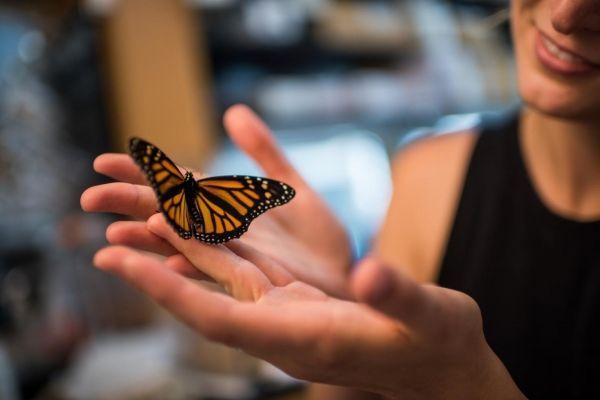A new study conducted at the University of Michigan reveals a previously unrecognized threat to monarch butterflies: Mounting levels of atmospheric carbon dioxide reduce the medicinal properties of milkweed plants that protect the iconic insects from disease.
Milkweed leaves contain bitter toxins that help monarchs ward off predators and parasites, and the plant is the sole food of monarch caterpillars. In a multi-year experiment at the U-M Biological Station, researchers grew four milkweed species with varying levels of those protective compounds, which are called cardenolides.
Half the plants were grown under normal carbon dioxide levels, and half of them were bathed, from dawn to dusk, in nearly twice that amount. Then the plants were fed to hundreds of monarch caterpillars.
The study showed that the most protective of the four milkweed species lost its medicinal properties when grown under elevated CO2, resulting in a steep decline in the monarch’s ability to tolerate a common parasite, as well as a lifespan reduction of one week.
Read more at University of Michigan
Image: This is researcher Leslie Decker with a monarch butterfly in a University of Michigan laboratory. (Credit: Austin Thomason/Michigan Photography)


